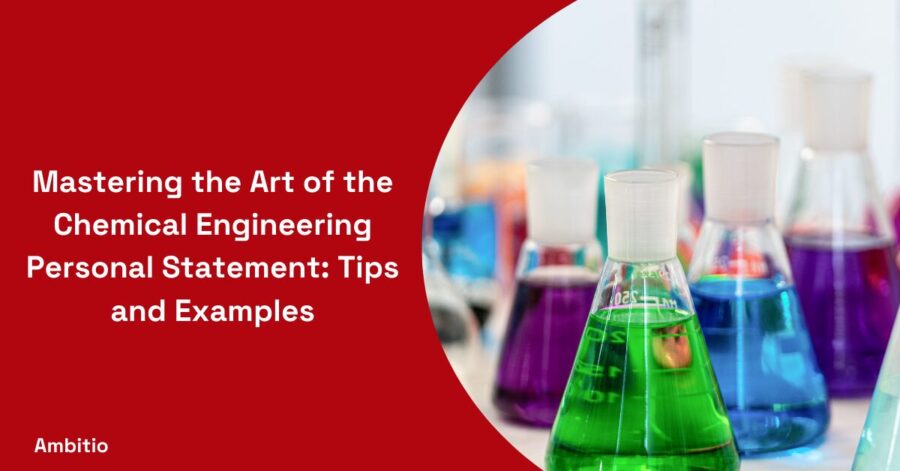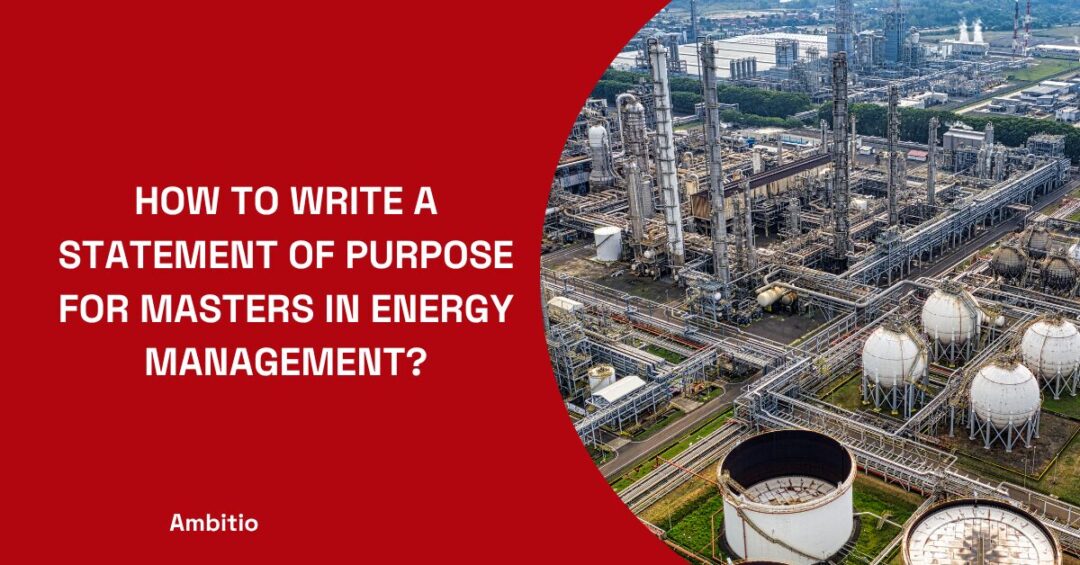13 December 2024
5 minutes read
Mastering the Art of the Chemical Engineering Personal Statement: Tips and Examples

Crafting the Perfect Chemical Engineering Personal Statement
Creating a standout personal statement for a degree in chemical engineering is crucial for your application success. This comprehensive guide offers invaluable insights, strategies, and real-life examples to help you develop a personal statement that resonates with admission committees and highlights your potential as a future chemical engineer.
The Importance of a Personal Statement in Chemical Engineering Applications
In the realm of chemical engineering applications, the personal statement stands as a pivotal component, often tipping the scales in favor of the applicant.
It’s not merely a formality, but a crucial narrative that can significantly influence the admission committee’s decision. Here’s why it holds such importance:
- Personal Touch to Your Application:
- Unique Narrative: Your personal statement is a unique narrative that adds a personal touch to your application. It’s your voice in the application process, allowing you to share your story, motivations, and aspirations.
- Beyond Grades and Scores: While grades and test scores are important, they don’t convey the whole story. The personal statement fills this gap, providing insight into your personality, character, and suitability for the program.
- Unique Narrative: Your personal statement is a unique narrative that adds a personal touch to your application. It’s your voice in the application process, allowing you to share your story, motivations, and aspirations.
- Demonstrating Your Passion for Chemical Engineering:
- Showcasing Genuine Interest: This is your chance to showcase your genuine interest and passion for chemical engineering. It’s about illustrating your dedication to the field beyond academic achievements.
- Relevance of Experiences: You can highlight how your experiences, both academic and extracurricular, have prepared you for a career in chemical engineering.
- Showcasing Genuine Interest: This is your chance to showcase your genuine interest and passion for chemical engineering. It’s about illustrating your dedication to the field beyond academic achievements.
- Reflecting on Your Academic Journey:
- Academic Preparedness: Discussing your academic journey, particularly in relevant subjects like math and physics, demonstrates your preparedness for the rigorous coursework in chemical engineering.
- Linking Past Learning to Future Goals: You can draw connections between what you’ve learned and how it has geared you towards a career in chemical engineering.
- Academic Preparedness: Discussing your academic journey, particularly in relevant subjects like math and physics, demonstrates your preparedness for the rigorous coursework in chemical engineering.
- Showcasing Your Skills and Attributes:
- Highlighting Key Skills: Chemical engineering requires a specific skill set, including problem-solving, analytical thinking, and teamwork. Your personal statement is an excellent platform to highlight these skills.
- Personal Attributes: Mention personal attributes that make you a good fit for the field, such as resilience, creativity, and a detail-oriented approach.
- Highlighting Key Skills: Chemical engineering requires a specific skill set, including problem-solving, analytical thinking, and teamwork. Your personal statement is an excellent platform to highlight these skills.
- Articulating Long-Term Goals and Aspirations:
- Career Objectives: Use your statement to articulate your long-term career objectives in chemical engineering. This shows the admissions committee that you have a clear vision and are committed to pursuing a career in the field.
- Contribution to the Field: Discuss how you plan to contribute to the field of chemical engineering. This could be through specific areas of interest, research goals, or career aspirations.
- Career Objectives: Use your statement to articulate your long-term career objectives in chemical engineering. This shows the admissions committee that you have a clear vision and are committed to pursuing a career in the field.
- Differentiating Yourself from Other Applicants:
- Stand Out: A well-crafted personal statement can set you apart from other applicants. It’s an opportunity to make a memorable impression, showcasing what makes you unique.
- Personal Experiences: Share personal experiences that shaped your interest in chemical engineering. This can include unique projects, internships, or even personal challenges you’ve overcome.
- Stand Out: A well-crafted personal statement can set you apart from other applicants. It’s an opportunity to make a memorable impression, showcasing what makes you unique.
- Opportunity for Reflection and Self-Assessment:
- Reflective Thinking: Writing a personal statement encourages reflective thinking about your academic journey and professional goals.
- Self-Assessment: It’s an opportunity for self-assessment, to understand your motivations, strengths, and areas of interest within chemical engineering.
- Reflective Thinking: Writing a personal statement encourages reflective thinking about your academic journey and professional goals.
Demonstrating Your Understanding of Chemical Engineering
This section is crucial for showing your depth of knowledge and commitment to the field. It’s not just about stating your interest; it’s about demonstrating it through experiences, understanding, and vision.
Showcasing Relevant Experiences and Projects
Discuss any projects, internships, or experiences that have provided you with a practical understanding of chemical engineering. Describe specific instances where you applied theoretical knowledge to solve real-world problems, highlighting your problem-solving skills and innovative thinking.
Reflecting on Your Motivation and Goals
Delve into why you are choosing chemical engineering. Is it a fascination with how raw materials can be transformed into useful products, or is it the allure of tackling global challenges like the energy crisis? Link your personal experiences and observations to your long-term professional goals in the field.
Highlighting Work Experience and Extracurricular Activities
Work experience and extracurricular activities can significantly enhance your personal statement by demonstrating your practical skills and commitment to chemical engineering beyond academics.
Detailing Industry Experience
If you have industry experience, such as an internship or placement, describe the skills you developed and how the experience solidified your choice to pursue chemical engineering. Explain the nature of the work, your role, and any key achievements.
Extracurricular Activities and Their Relevance
Talk about extracurricular activities, such as science clubs, competitions, or relevant hobbies, and how they have contributed to your understanding and passion for chemical engineering. This section is a great opportunity to showcase your teamwork, leadership, and organizational skills.
Integrating Personal Attributes and Skills
- Problem-Solving Ability:
- Highlight experiences where you effectively solved complex problems, especially in scientific or mathematical contexts.
- Reflect on how this skill is crucial for addressing the challenges in chemical engineering.
- Analytical Thinking:
- Provide examples of situations where your analytical skills were tested and how you excelled, such as in research projects or advanced coursework.
- Emphasize the importance of this skill in understanding and designing chemical processes.
- Effective Communication:
- Cite instances where you successfully communicated complex ideas, whether in presentations, reports, or group discussions.
- Stress the relevance of clear communication in the collaborative nature of engineering work.
- Teamwork:
- Discuss team projects or activities you participated in, highlighting your ability to work well with others.
- Illustrate how teamwork is essential in the field of chemical engineering where large-scale projects often require collaborative efforts.
- Leadership Experience:
- Share experiences where you took on leadership roles, such as in student organizations, sports teams, or group projects.
- Connect these experiences to the leadership roles you aspire to take on in your future career.
- Organizational Skills:
- Mention specific instances where your organizational skills were crucial, like managing events or balancing multiple assignments.
- Link this skill to the structured and methodical approach needed in chemical engineering studies and practice.
- Adaptability and Flexibility:
- Recall situations where you successfully adapted to new challenges or changes, perhaps during internships or extracurricular activities.
- Highlight the importance of being adaptable in the ever-changing field of chemical engineering.
- Creativity and Innovative Thinking:
- Talk about creative solutions you’ve developed for problems in your academic or personal life.
- Show how creativity is vital in developing new processes and solutions in chemical engineering.
- Passion for Continuous Learning:
- Describe your enthusiasm for learning new concepts and technologies, especially those related to chemical engineering.
- Emphasize how this lifelong learning attitude is necessary for staying updated in the evolving field of chemical engineering.
- Attention to Detail:
- Provide examples where your attention to detail led to success or prevented errors, particularly in scientific experiments or detailed analysis.
- Connect this trait to the precision required in chemical engineering, where small details can significantly impact outcomes.
Concluding Your Personal Statement
The conclusion of your personal statement should leave a lasting impression. It’s an opportunity to summarize your key points and reiterate your enthusiasm and suitability for a degree in chemical engineering.
Summarizing Your Key Points
Briefly recap the main points of your personal statement, emphasizing your academic achievements, relevant experiences, and personal attributes. Reinforce how these elements come together to make you an ideal candidate for the program.
Looking Towards the Future
End with a forward-looking statement. Discuss your aspirations and how a degree in chemical engineering will help you achieve your long-term career goals. Convey a sense of excitement and readiness for the challenges and opportunities that lie ahead in your academic and professional journey.
Remember, your personal statement for chemical engineering is a unique narrative about your journey and aspirations in the field. It should be a blend of your academic achievements, work experiences, and personal insights, all woven together to demonstrate your enthusiasm, suitability, and readiness for a career in chemical engineering.
FAQs
How long should my chemical engineering personal statement be?
Typically, personal statements are about 500-1000 words, but it’s important to adhere to the specific requirements of the university or program you’re applying to.
Can I use the same personal statement for multiple applications?
While you can maintain a similar structure, it’s advisable to tailor your personal statement to each program’s specific requirements and values.
What if I don’t have any direct experience in chemical engineering?
Focus on related experiences and skills, such as academic projects in physics or chemistry, that demonstrate your potential in the field.
Is it okay to seek feedback on my personal statement?
Yes, getting feedback from teachers, mentors, or peers can be invaluable in refining your statement. Just ensure the final submission is entirely your own work.
How important is it to proofread my personal statement?
Extremely important. Spelling, grammar, and clarity of expression are crucial in making a positive impression.

You can study at top universities worldwide!
Get expert tips and tricks to get into top universities with a free expert session.
Book Your Free 30-Minute Session Now! Book a call now




























